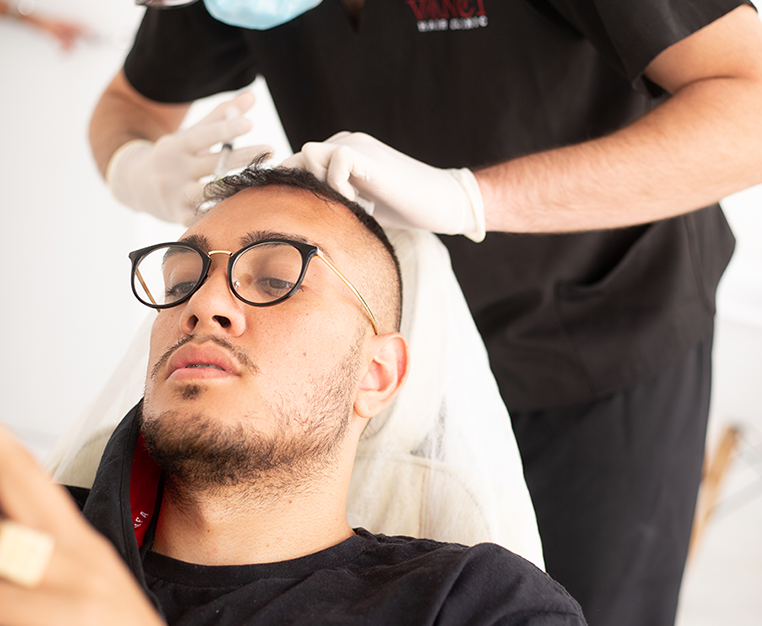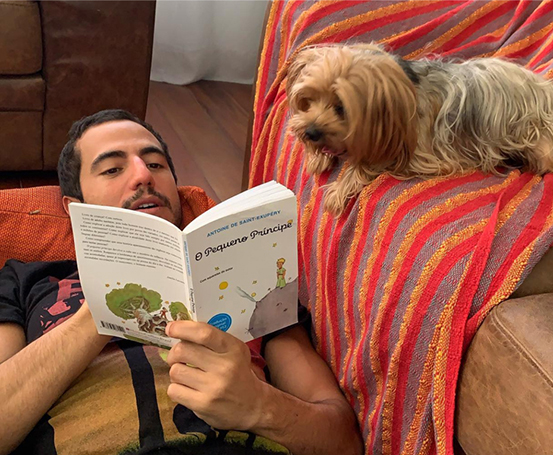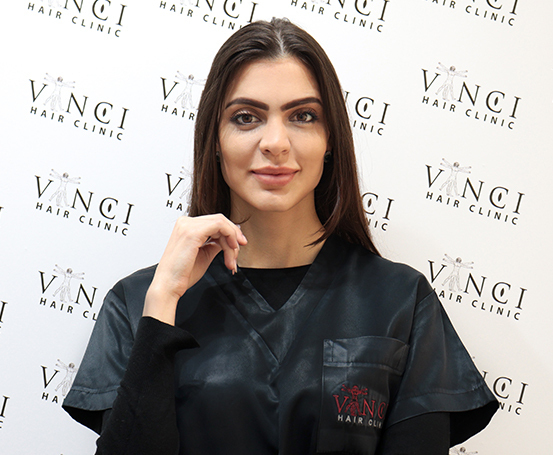Finding clumps of your hair on the pillow or in the shower drain can be alarming. The good news is that you don’t need to panic just yet. Most of us, regardless of our gender, regularly experience a certain amount of hair falling out when we sleep or when we shower. The question we need to ask is when does this kind of normal hair shedding tip over into something more worrying? In other words, when does hair shedding become hair loss?
Facts You Should Know About Your Hair
Whether you’re experiencing hair shedding or hair loss depends on a range of factors, but there is a difference between the two. But before delving deeper into that, here are a few facts you should know about your hair.
You Shed Up To 100 Hair Strands Every Day
On average, a person loses between 50 and 100 hairs per day, but you may shed more depending on your hair care routine. People with longer hair tend to think they lose more, but often that’s simply because their long strands are more noticeable.
There Are Approximately 100,000 Hairs On Your Head
Since you have this amount of hair on your scalp, losing up to 100 per day doesn’t make much of a difference in terms of your appearance.
Hair Grows And Sheds In Cycles.
The hair cycle includes the anagen or growth phase, which can last two to seven years; the catagen or transition phase, lasting about two weeks; and the telogen or resting phase which can last about three months. If these phases become unbalanced or disrupted so that more hair enters the last stage, you may experience more hair shedding. A disruption like this can lead to patchiness or hair thinning.
The Difference Between Hair Loss And Hair Shedding
Although it’s common to use hair loss and hair shedding interchangeably, there are notable differences. Whether you’re dealing with hair loss or experiencing a period of shedding, both can be stressful and worrying, regardless of their differences.
What Is Hair Loss?
Hair loss, known more formally as anagen effluvium, occurs when something stops the hair on your head from growing altogether. Unless you identify and treat the cause, your hair won’t start regrowing. If you discover your hairline is receding or notice bald spots or patches on your head, you’re likely experiencing hair loss.
Common Causes Of Hair Loss
There are plenty of causes of hair loss, including hormonal imbalances, injury to the scalp and hereditary pattern baldness. Hair loss can be prevented, and regrowth encouraged, when it is due to temporary factors such as:
- Excessive styling – bleaching, hair dye or frequently using heated styling products, such as curling iron, flat iron and blow dryer, can make your hair brittle and increase the risk of hair fallout.
- Rubber bands, pins and hair clips holding your hair tightly can have similar effects.
- Hair loss can be due to illnesses such as anorexia, anaemia, thyroid disorders and various skin conditions. Chemotherapy and some prescription medications can also cause hair fallout. Once the illness has been treated or you stop taking the drug, the hair loss stops and regrowth can take place.
- Nutritional deficiencies can cause hair loss. A lack of protein, iron and vitamin B12 may cause your hair to thin. The best solution is to ensure that you eat a balanced diet and consume nutrient-dense foods.
What Is Hair Shedding?
Hair shedding occurs during the natural hair growth cycle when you shed 50 to 100 strands a day. If you’re experiencing excessive shedding, which is more than normal, then you might be dealing with a temporary hair loss condition called telogen effluvium.
Causes Of Hair Shedding
Hair shedding typically occurs in the aftermath of stress or shock. Those going through traumatic events, such as bereavement or relationship breakdown, may notice excessive shedding a few months after their experience. It can also follow a dramatic physical shock, such as that brought on by surgery, rapid weight loss or childbirth. Unlike hair loss, hair shedding is temporary and normal. As the body readjusts, the shedding of hair usually stops.
Conclusion
Whether it’s permanent hair loss or temporary hair shedding, the experience of seeing your hair falling out can be a difficult one. Talk to an expert so that you know what you’re dealing with and how to solve the problem.
Vinci Hair Clinic specialists are available to talk with you about any of your concerns about hair loss. Get in touch with us to book a free, no-obligation consultation. We have a range of treatments and procedures to address all kinds of hair issues. Book your appointment today!



